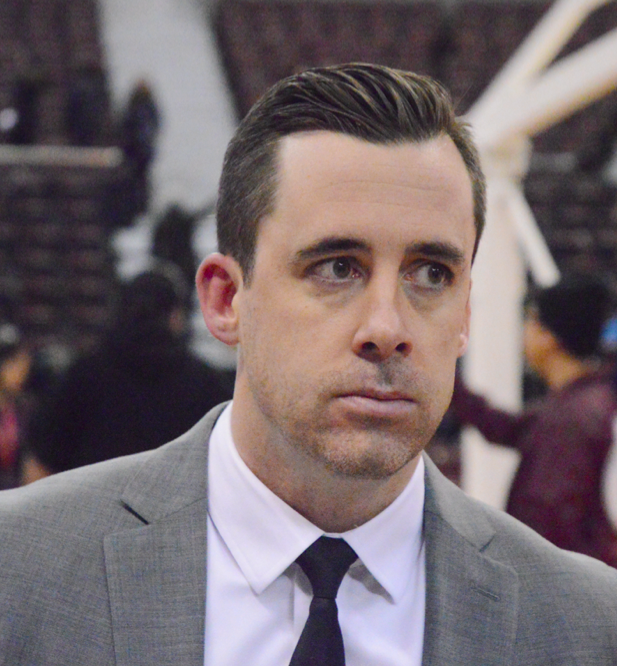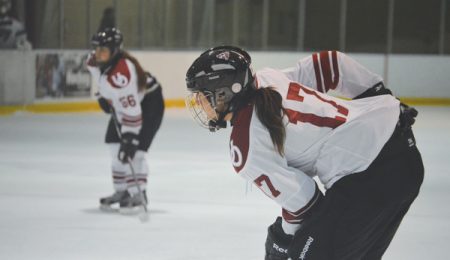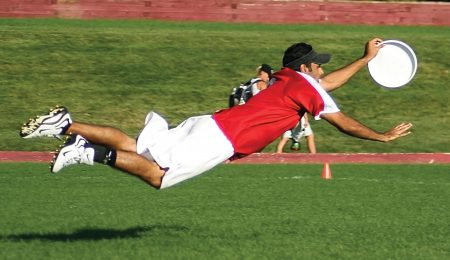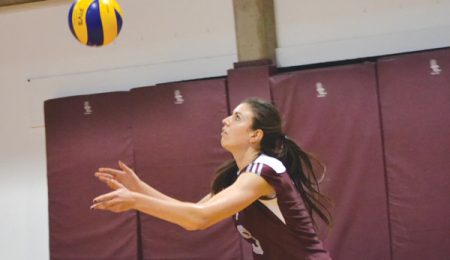The crowd roared at Capital Hoops as the starting lineup of the men’s team was announced, and head coach James Derouin sat court-side waiting for the game to start. There are very few instances when you’ll see Derouin sitting court-side.
As a Gee-Gees fan, it is quite important to learn what the coach of your team communicates with their body language.
Off the court, Derouin is an approachable character with an amiable allure, which earns him the trust of his athletes and sometimes complaints from Andy Sparks, head coach of the women’s team. However, Derouin isn’t quick to smile.
“He’s a pretty serious guy,” explains fourth-year guard Johnny Berhanemeskel, “but everyone already knows they have such a good relationship with him off the court, that for the most part when he says something it’s out of his best interest — whether he’s yelling or not.”
There generally isn’t a moment during a game when you won’t see Derouin pacing, standing nearly halfway up the court, or yelling something at the referees about a bad call.
Derouin starts off on a good foot with the referees, but won’t back down from defending his players if he feels they’ve made a bad call. Things begin to get especially interesting when the game doesn’t feel like a win.
He will begin to pause momentarily, and from there he’ll progress to turning away after a play. Next, He will sit, exasperated, waiting for the referees to call a time-out.
By the end of the third quarter at Capital Hoops, Derouin had achieved his final form.
“His token move is when he takes his blazer off,” says Berhanemeskel. “It really means he’s turning it up a notch. It can happen after a bad play, or a bad ref call.”
Because showing up to the games in his full suit is such an important ritual shedding one of those layers is pretty big.
Unlike coach Derouin, Sparks spends more of his time sitting during the game. In fact, you could call that his standard position.
“I’d say you can tell that he’s getting angry when he stands up,” says first-year shooting guard Sarah Besselink.
The referees seem to bring Sparks to his feet long before the players do, particularly with the team’s strong performance lately. Sparks generally alters the volume of his complaints depending on how close the refs are, which keeps him out of trouble.
“When he paces down the court to talk to us, that’s when you can tell he’s not happy with the players,” says Besselink. “Sometimes he uses his clipboard too. That’s a classic.”
How Sparks uses the clipboard, of course, depends on whether the play was successful, in which case it’ll end up on the ground at times. These coaches are impassioned in part because of their love of the sport, but also in part because of their athletes.





